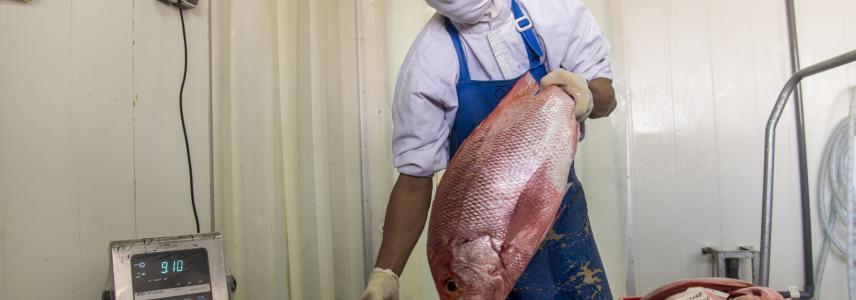COVID-19 disrupts seafood markets and production

COVID-19 has caused immediate and devastating consequences in many countries. Border closures, social distancing, lockdowns and other measures taken to stop the spread have serious consequences for fish and seafood trade, especially products destined for the foodservice industry. Future consequences will be far-reaching.
COVID-19 has caused global economic shifts which have slowed or stopped normal outlets for certain products. The food service sector in the EU, US, China and many other countries, has almost completely shut down. A large amount of fish and seafood is consumed in this sector. The retail sector saw a slight increase in sales. This helps countries like Vietnam, who send a lot of product to the EU retail market. The increase is not expected to last, though.
Producing countries have also been affected by COVID-19. Farm and factory work has stopped due to government lockdown measures and staff shortages. Stock is building up in cold stores and farms are putting operations on hold. Countries like Indonesia, which like Vietnam is not under lockdown, are still producing products. Yet, they are struggling to supply the increased demand coming from China due to transportation disruptions; this means adding more stock to already full cold stores.
Problems for businesses
One big and immediate problem for many businesses is having the cash to continue operations without income from produced products. This is particularly the case for SMEs. Most European importers are also facing financial challenges and insecurity at the moment. They are ordering conservatively and cancelling or postponing orders when possible.
Once markets reopen, the fish and seafood that has built up could suddenly come to market, which could make prices crash. Farmers may have to sell below production prices, and exporters may have stock that is more expensive than market value. Beyond this, the longer the lockdown goes on, the harder it will be for companies to fund starting operations again.
Supporting global food security
Governments are working towards simplifying entry procedures for food products. They are, for example, allowing digital copies of certificates, where they normally would not. Organisations like the World Health Organization and the European Union support and work towards continuing the trade of food and essentials. They hope to help businesses survive the crisis and support global food security.
There is a lot of uncertainty about the future of the market in the short and long term. One of the best things that companies can do is discuss with their suppliers and buyers, and work together for mutual survival - we all rely on each other.
European market COVID-19 updates
Make sure to stay informed on COVID-19-related and general updates on the European market.
Tips:
- Read our Tips on Doing Business with European Fish and Seafood Buyers and Organising your Fish and Seafood business to Europe to learn more about how to build and maintain strong business relationships with European buyers. This is particularly important during this time of increased uncertainty.
- The European Market Observatory for Fisheries and Aquaculture presents a weekly analysis of trends and data related to the coronavirus. Look at the most recent weekly trade data via EUMOFA’s market analysis tool.
- Stay informed on the impact of COVID-19 on the seafood industry in the UK through updates and market data from Seafish.
- Follow industry news sites like Seafood Source and Undercurrent News.
- Read this overview of the immediate impact of the coronavirus crisis on European fish processing and trade sector by organisations like the Dutch Fish Federation.
- Understand the measures the European Union is taking to support fisheries and aquaculture sectors.
- Follow the restrictions in your main European markets, including France, Spain, Italy, the United Kingdom and the Netherlands.
This news article was written for CBI by Seafood Trade Intelligence Portal.
Stay informed
To stay informed on the latest developments in the fish and seafood sector, make sure to subscribe to our newsletter.